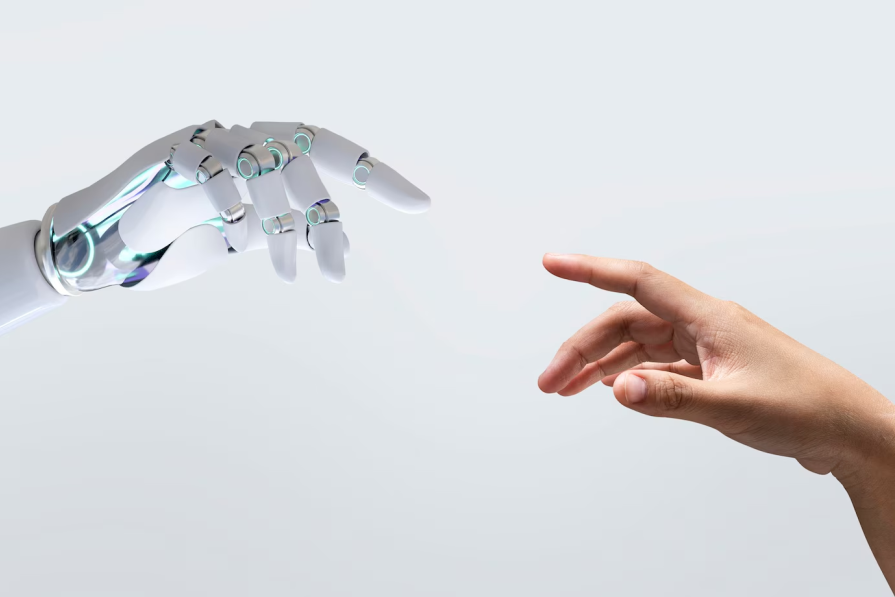So, have you already chosen the profession of your dreams? The one that will bring you money, stability and a lot of pleasure? If so, congratulations, you are either a genius or from a parallel reality, and if not, then you are in good company, because choosing a profession in our time is, to put it mildly, a quest with an unknown ending.
In the past, everything was clear: an engineer is reliable, a doctor is prestigious, a teacher is respected... And now? Even graduates of the best universities are not sure that their knowledge will be useful in five years! Just the thought that you will have to study all your life is already tiring. But what can you do? The world is rushing forward, technology is stepping over the heads of professions, and we are sitting and trying to understand where we will be in ten years.

How do you guess the future of professions?
If only someone had said for sure: in 20 years, there will be a need for specialists in X and Y. But alas, even the smartest people in this field - futurologists, analysts, experts on the labor market - can only speculate. True, they have cool tools: big data, trends, technologies, and so they analyze all this and try to understand what awaits us.
For example, there is the Atlas of New Professions, a kind of guide to the professions of the future. There are quite unexpected specialties: a specialist in the metaverse, a media policeman, a bioethicist... It sounds like something out of science fiction, but let's remember: 20 years ago, no one knew what an SMM manager and UX designer were, and blogging seemed like a strange hobby! Now these professions are the order of the day. So, maybe media policemen and bioethics are our very-soon-to-tomorrow?

Technology: The Main Culprits of All Change
If you look at the future as a whole, one thing is already clear: technology is everything, it changes everything it touches. Below there are a few examples:
- IT professionals. Every year, there is more data, programs are more complex, and tasks are trickier. Therefore, programmers, big data analysts, and AI development engineers will be in high demand for a long time to come. That’s why getting a higher education in IT is one of the most reliable investments you can make — this field continues to grow faster than any other, and gives you flexibility to adapt to future changes.
- Artificial intelligence. AI is already helping doctors make diagnoses, banks keep track of our money, and stores guess what we want to buy. And this is just the beginning! AI specialists will become even more needed: there will be a demand for engineers who create these systems, and experts who will understand the ethics of their use.
- Digital medicine. Telemedicine, neural networks for diagnostics, virtual reality in rehabilitation — all this already exists. But who will create and maintain all this? This is where new professions are needed: from online therapists to designers of virtual treatment spaces.
Drones and electric cars: where will drivers go?
Drivers, mechanics, refuelers - all of them are waiting for changes, because electric cars and drones are no longer a fantasy, but a reality.
- Truck and taxi drivers will be replaced by unmanned vehicle operators.
- Mechanics will stop fixing old engines - their main work will be with electronics.
- Refuelers will become specialists in charging stations for electric cars.
Digitalization: Risks and New Challenges
With the development of technology, in addition to new opportunities, new problems appear. Cybercrimes, data breaches, and AI fraud are already our reality. To deal with this, new specialists are needed:
- Digital lawyers for intellectual property and AI,
- Cyber investigators who will search for criminals in the digital world,
- AI judges to figure out who is to blame: a person or a machine.
And what about the usual professions?
Technology is technology, but where can ordinary professions go? Will they disappear? Not quite, of course.
- Medicine. Doctors, nurses, surgeons will remain important, no doubt, but their work will change: robotic assistants, telemedicine, data analysis systems will become part of everyday life.
- Working specialties. Welders, plumbers, and installers are here to stay, but their tools and tasks will become more complex: 3D printing is already being used in construction, and smart homes require new skills.
- Beauty industry. Hairdressers, manicurists, cosmetologists? Robots will not replace them. Why? Because people need communication, care and the very individual approach that only a person can give.
Ethics, science and flexibility
The future is not only about technology, but also about ethics. How far are we willing to go with artificial intelligence or genetic engineering? These questions are becoming increasingly important. For example, bioethicists will decide what is permissible in experiments with human nature, and interdisciplinary specialists will combine knowledge from biology, technology, and a dozen other fields to cope with new challenges.

Education: Lifelong Learning
How can you survive in a world that is changing so quickly? There is only one answer – to study. Permanently.
- Schools will begin to teach critical thinking, creativity and problem-solving,
- Universities will adapt programs to market demands, add more courses on AI, biotechnology and cybersecurity,
- Lifelong learning will become the norm. Do you want to stay in demand? Get ready for new knowledge every couple of years, or even more often!
Bottom line: everything is changing, and so are we. Choosing a profession is no longer forever, it is not an end point, but an endless process. You will have to change, whether you want it or not. Difficult? Yes. A little scary? Of course. But this is the main advantage of our time: we can reinvent ourselves, master new roles, look for what inspires. Who knows, maybe in ten years you will become the very specialist in AI ethics or the designer of virtual worlds! The main thing is to be ready for change and not be afraid of it.












